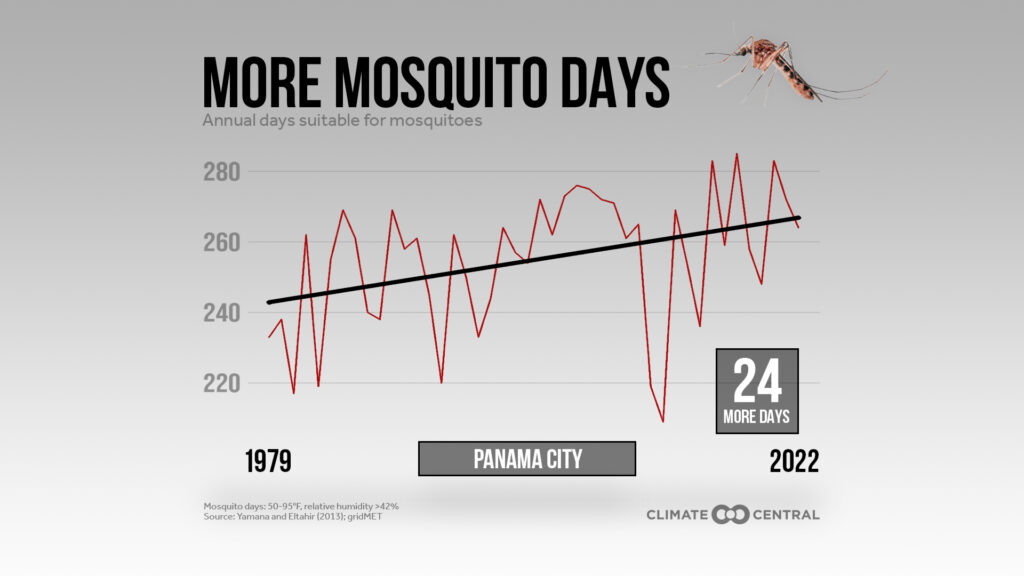The warming climate is making locations across the United States more hospitable to mosquitoes — along with the health risks they carry.
Climate Central researchers assessed weather trends in 242 U.S. locations from 1979 to 2022, focusing on the warm, humid conditions in which mosquitoes thrive. Their analysis determined how often these locations experienced a “mosquito day” when daily minimum and maximum temperatures were both between 50 F and 95 F, and average relative humidity was 42% or higher.

The analysis found that 173 of the locations saw their annual mosquito days increase since 1979 — by 16 days on average. Ten of the 11 locations studied in Florida experienced an increase in mosquito days over the period. Panama City had the largest increase in the state, with 24 more mosquito days since 1979. Only Tallahassee saw a decrease, with one less mosquito day over the period.
The Southeast and South had the most annual mosquito days overall, experiencing them over 50% of the year. The Ohio Valley and Northeast saw the largest region-wide rise in mosquito days in the analysis.
As Climate Central notes, warming spring and fall temperatures mean mosquitoes can emerge earlier and survive later into the year — increasing the chances for them to bite people and potentially transmit disease.
Visit Climate Central’s website to see data on individual cities and more information.
Nathan Crabbe is editor of The Invading Sea. Sign up for The Invading Sea newsletter by visiting here.




Interesting.